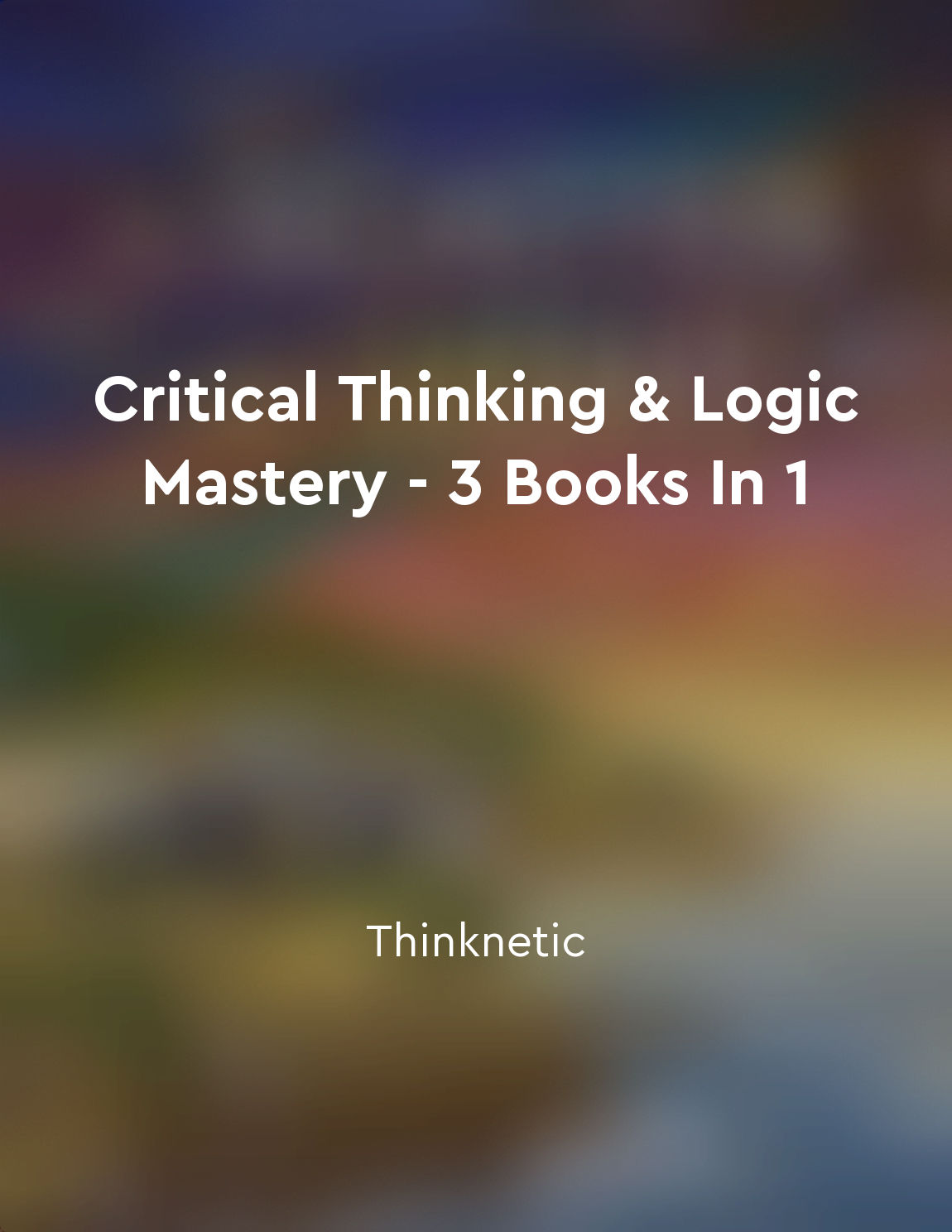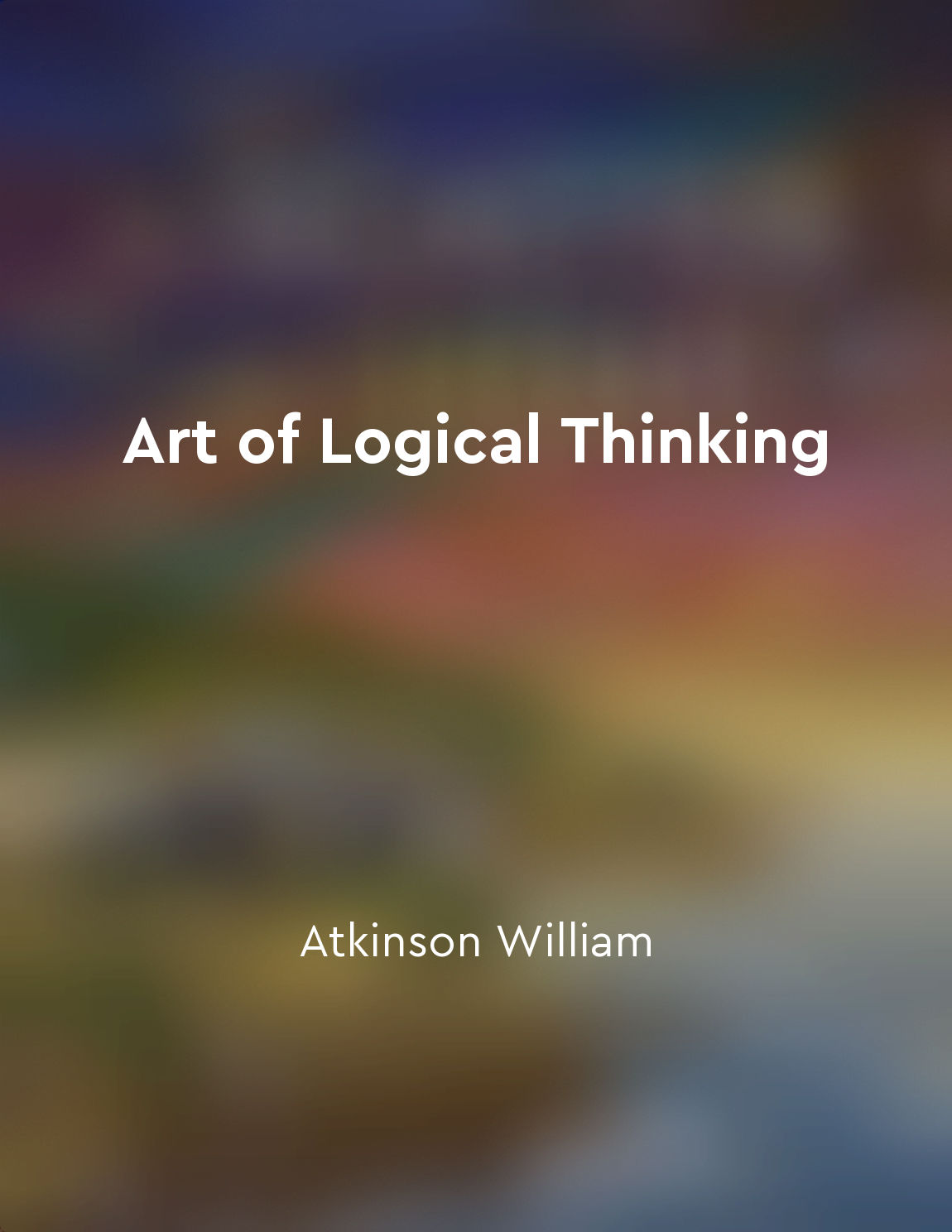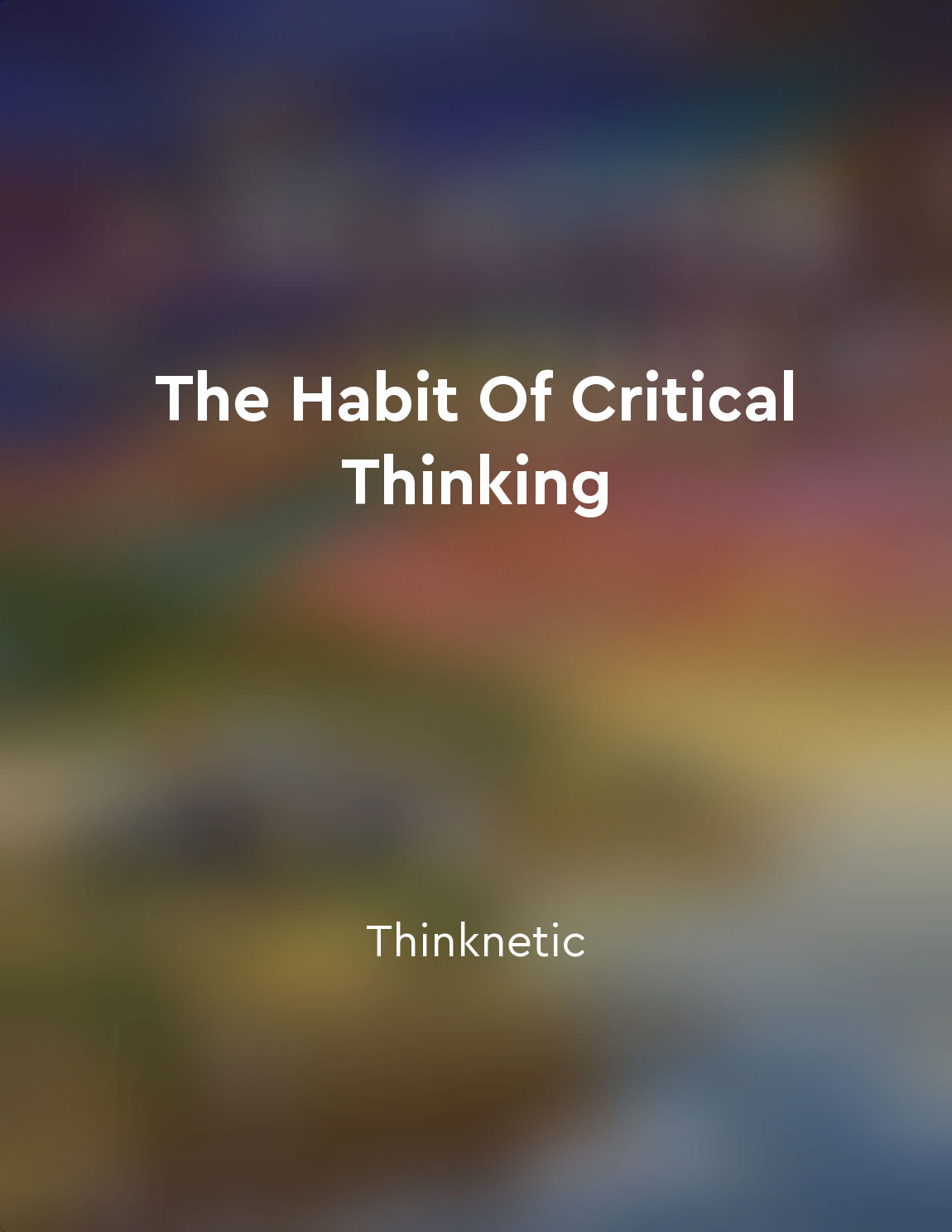Western philosophy values logic from "summary" of How the World Thinks by Julian Baggini
In the western philosophical tradition, logic is considered the cornerstone of rational thought. It is seen as the tool that allows us to construct sound arguments, identify fallacies, and ultimately arrive at truths about the world. This emphasis on logic can be traced back to the ancient Greeks, particularly Aristotle, who laid the foundation for formal logic with his syllogistic reasoning. The Western philosophical tradition values logic not just as a means to an end, but as an end in itself. This is reflected in the emphasis placed on logical reasoning in fields such as mathematics, science, and philosophy. In these disciplines, logical coherence is seen as a mark of rigor and intellectual clarity. One of the key reasons why Western philosophy values logic is its commitment to the pursuit of truth through reason. By adhering to logical principles, philosophers aim to avoid the pitfalls of bias, prejudice, and wishful thinking that can cloud our judgment. In this way, logic serves as a safeguard against fallacious reasoning and helps us arrive at more reliable conclusions. Moreover, the emphasis on logic in Western philosophy is also tied to a broader cultural preference for order, precision, and systematic thinking. The Western intellectual tradition has long been characterized by a desire to systematize knowledge and organize it into coherent structures. Logic plays a crucial role in this endeavor by providing a framework for clear, systematic thought.- The value placed on logic in Western philosophy reflects a deeper commitment to rationality, clarity, and intellectual rigor. By prioritizing logical reasoning, Western thinkers seek to uphold the standards of sound argumentation and critical thinking that are essential for the pursuit of truth and understanding.
Similar Posts
Persistence is key to achieving success in math
To master math, one must understand the importance of persistence. Math is not a subject that can be conquered overnight. It re...

Questioning assumptions is fundamental to critical thinking
To think critically means to question assumptions. These assumptions are the ideas and beliefs we often take for granted. They ...
Developing critical thinking habits
Developing critical thinking habits is an essential skill that can be cultivated through practice and dedication. It involves c...
They are open to new ideas
Being open to new ideas is a fundamental aspect of critical thinking. This means being receptive to different perspectives, opi...

Acknowledging emotions can enhance reasoning
The ability to acknowledge and understand our emotions is crucial in the process of logical thinking. Emotions play a significa...

Strive for continuous improvement
Continuous improvement is a fundamental concept in the realm of critical thinking. It involves the unceasing effort to enhance ...
Inductive reasoning helps uncover patterns in data
Inductive reasoning is a powerful tool that allows individuals to identify patterns and make generalizations based on specific ...
Existentialism focused on individual freedom and responsibility
Existentialism emphasizes the importance of individual freedom and responsibility. This philosophical movement argues that each...

